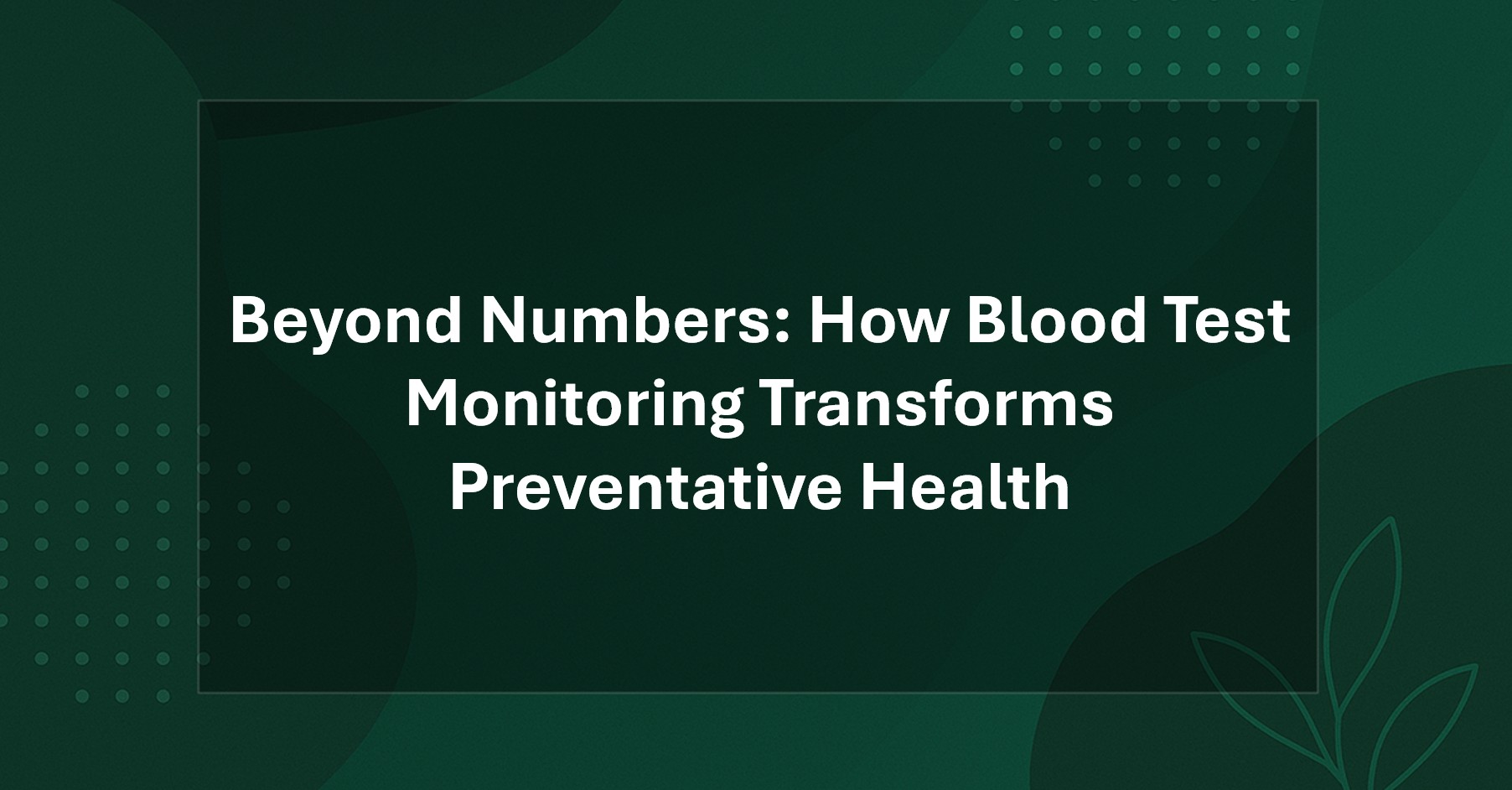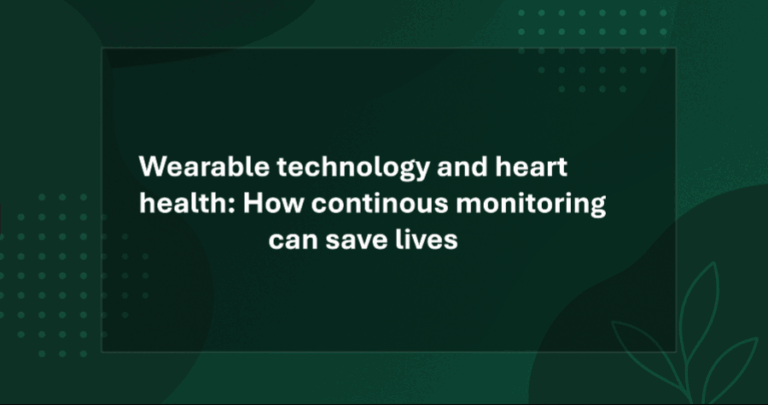Beyond Numbers: How Blood Test Monitoring Transforms Preventative Health
In an era where healthcare is increasingly focused on prevention rather than cure, blood test monitoring has emerged as a powerful tool for proactive health management. Beyond the traditional annual check-up, regular blood testing provides a window into the body’s internal functioning, offering early warnings of potential health issues long before symptoms appear. This approach is particularly relevant in Ireland, where preventable chronic diseases account for a significant portion of healthcare expenditure.
The Evolution of Blood Testing in Ireland
Blood testing has undergone a remarkable transformation in recent decades. What was once a reactive diagnostic tool ordered only when symptoms appeared has evolved into a proactive health monitoring strategy. In Ireland, this shift has been particularly pronounced, with the Health Service Executive (HSE) increasingly emphasizing preventative screening programmes (1).
Traditional blood testing typically involved infrequent, comprehensive panels ordered during annual check-ups or when investigating specific symptoms. Modern approaches now include more regular, targeted testing focused on individual risk factors and health goals. This evolution reflects a broader shift in healthcare philosophy from disease treatment to health optimization.
According to data from the Irish Health Survey, only 32% of Irish adults had comprehensive blood tests in the past year, despite recommendations from health authorities suggesting more frequent monitoring for many population segments (2). This gap represents both a challenge and an opportunity for improving preventative health strategies across the country.
The Science of Blood Biomarkers
Blood tests provide objective measurements of various biomarkers—measurable indicators that reflect physiological processes occurring within the body. These biomarkers fall into several categories:
Metabolic Markers
Metabolic markers include glucose, insulin, and lipid profiles that provide insights into how efficiently the body processes energy. Research from University College Dublin found that regular monitoring of these markers can identify metabolic syndrome—a cluster of conditions that increase the risk of heart disease, stroke, and type 2 diabetes—up to seven years before clinical diagnosis (3).
In Ireland, where 60% of adults are overweight or obese, and diabetes affects approximately 225,000 people (with thousands more undiagnosed), these markers are particularly relevant (4).
Inflammatory Markers
Chronic inflammation is increasingly recognized as a driver of numerous diseases, from cardiovascular conditions to autoimmune disorders and even certain cancers. Markers such as high-sensitivity C-reactive protein (hs-CRP), interleukin-6 (IL-6), and tumour necrosis factor-alpha (TNF-α) can identify inflammation levels in the body.
A landmark study from Trinity College Dublin demonstrated that individuals with elevated inflammatory markers had a 63% higher risk of developing chronic disease over a 10-year period, even when controlling for traditional risk factors (5).
Nutritional Markers
Nutritional deficiencies can significantly impact health, often in subtle ways that may not produce obvious symptoms until advanced stages. Markers for vitamins D, B12, folate, iron, zinc, and magnesium provide insights into nutritional status.
This is particularly relevant in Ireland, where vitamin D deficiency affects approximately 47% of the adult population due to limited sun exposure at northern latitudes (6). Research from the Irish Longitudinal Study on Ageing (TILDA) found that vitamin D deficiency is associated with a 75% increased risk of depression and a 25% increased risk of cardiovascular events in older Irish adults (7).
Hormonal Markers
Hormones regulate virtually every physiological process in the body, from metabolism and growth to mood and reproduction. Testing hormones such as thyroid stimulating hormone (TSH), testosterone, oestrogen, and cortisol can identify imbalances that affect overall health.
A study from the Royal College of Surgeons in Ireland found that subclinical thyroid dysfunction—which often produces no obvious symptoms—affects approximately 8% of Irish adults and is associated with increased risk of cardiovascular disease, osteoporosis, and cognitive decline when left unaddressed (8).
Beyond Disease Detection: The Preventative Power of Blood Testing
While blood testing has traditionally been used to diagnose existing conditions, its greatest value may lie in prevention:
Early Warning System
Perhaps the most significant benefit of regular blood testing is its ability to detect subtle changes before they manifest as clinical symptoms. Research published in the Irish Medical Journal demonstrated that regular blood monitoring identified pre-diabetic states in 76% of cases at least four years before clinical diagnosis would have occurred through traditional means (9).
This early detection window provides a critical opportunity for lifestyle interventions that can potentially reverse the condition before it progresses to full diabetes, which affects approximately 9% of the Irish adult population (10).
Personalized Reference Ranges
Standard reference ranges on blood tests represent population averages rather than optimal values for individuals. Regular testing establishes personal baselines that can reveal meaningful changes even when values remain within “normal” ranges.
Research from the Conway Institute at University College Dublin found that tracking individual trends in biomarkers was 43% more effective at predicting future health outcomes than single measurements compared to population reference ranges (11).
For example, a 30% increase in liver enzymes might still fall within the “normal” reference range but could indicate early liver stress that warrants attention. This personalized approach is particularly valuable in Ireland’s diverse population, where genetic factors can influence what constitutes “normal” for different individuals.
Motivation for Lifestyle Changes
Objective data can be a powerful motivator for behaviour change. A study conducted by Sport Ireland found that participants who received regular blood test feedback were 67% more likely to maintain healthy lifestyle changes compared to those who received general health advice without personalized data (12).
This finding is particularly relevant in Ireland, where only 46% of adults meet the national physical activity guidelines, and dietary patterns often include excessive consumption of processed foods (13).
Real-World Applications in the Irish Context
The practical applications of blood test monitoring extend to everyday life and are particularly relevant to the Irish population:
Cardiovascular Risk Assessment
Cardiovascular disease remains the leading cause of death in Ireland, accounting for 29% of all deaths (14). Traditional risk assessments focus primarily on cholesterol levels, but comprehensive blood panels provide a more nuanced picture.
Advanced lipid testing that examines particle sizes and numbers, rather than just total cholesterol, has been shown to improve risk prediction by up to 43% compared to standard lipid panels (15). Additionally, inflammatory markers like hs-CRP can identify cardiovascular risk in individuals with otherwise normal cholesterol levels.
A study from the Irish Heart Foundation found that comprehensive blood biomarker assessment identified high-risk individuals who would have been classified as low-risk by traditional scoring systems in 31% of cases (16).
Diabetes Prevention
Type 2 diabetes affects approximately 200,000 people in Ireland, with an additional 65,000 living with undiagnosed diabetes (17). The condition develops gradually, often with a prolonged pre-diabetic phase that can last years.
Regular monitoring of glucose metabolism markers—including fasting glucose, HbA1c, and insulin levels—can identify pre-diabetic states when lifestyle interventions are most effective. Research from the Diabetes Federation of Ireland demonstrated that individuals who received early intervention based on blood test results reduced their risk of progressing to diabetes by 58% over a three-year period (18).
Nutritional Optimization
The modern Irish diet, while improved in recent decades, still presents nutritional challenges. Regular blood testing can identify specific deficiencies that may not produce obvious symptoms but can significantly impact health.
A comprehensive study by the Irish Universities Nutrition Alliance found that 74% of Irish adults had at least one suboptimal nutrient level, with vitamin D, magnesium, and omega-3 fatty acids being the most common deficiencies (19). Addressing these deficiencies through targeted supplementation led to measurable improvements in energy levels, immune function, and mental wellbeing.
Hormonal Balance
Hormonal imbalances affect a significant portion of the population, often with subtle symptoms that are easily attributed to other causes like stress or aging. Regular testing can identify these imbalances before they progress to clinical disorders.
Research from the National Institute of Preventive Cardiology in Galway found that subclinical thyroid dysfunction affects approximately 8% of Irish adults and is associated with a 29% increased risk of cardiovascular events when left untreated (20).
For women, tracking hormonal changes throughout life stages—from reproductive years through perimenopause and menopause—provides opportunities for interventions that can significantly improve quality of life and reduce health risks.
Integration with Irish Healthcare Systems
The true potential of blood test monitoring lies in its integration with broader healthcare systems:
Primary Care Integration
Forward-thinking general practitioners across Ireland are increasingly incorporating regular blood monitoring into preventative care plans. A pilot programme in 15 GP practices across Dublin, Cork, and Galway found that practices using proactive blood monitoring identified 41% more cases of pre-diabetes, subclinical thyroid dysfunction, and nutritional deficiencies compared to traditional reactive approaches (21).
Dr. Siobhan Murphy, a GP in Galway, notes: “Regular blood monitoring has transformed our approach to preventative care. We’re identifying issues years earlier than we would have with traditional approaches, giving patients the opportunity to make changes before conditions progress” (22).
Health Insurance Incentives
Several Irish health insurers now offer incentives for preventative blood testing. VHI Healthcare’s “HealthPlus” programme provides premium discounts of up to 15% for members who participate in regular health monitoring, including blood testing (23).
This approach recognizes the economic benefits of prevention; data from the Irish Health Insurance Authority indicates that early intervention based on blood test results reduces healthcare costs by an average of €3,200 per patient annually for those with identified risk factors (24).
Workplace Wellness Programmes
Irish employers are increasingly incorporating blood testing into workplace wellness initiatives. A study of 23 Irish companies found that workplace programmes that included regular blood monitoring resulted in 31% fewer sick days and 24% lower healthcare costs compared to traditional wellness programmes without biomarker tracking (25).
These programmes are particularly valuable in Ireland’s knowledge economy, where employee wellbeing directly impacts productivity and innovation.
Challenges and Considerations
Despite its benefits, blood test monitoring presents several challenges that must be addressed:
Interpretation Complexity
Blood test results can be complex to interpret, particularly when considering individual variations and trends over time rather than simple comparisons to reference ranges.
A survey by the Irish Medical Council found that 67% of patients reported difficulty understanding their blood test results, highlighting the need for better education and communication tools (26). This challenge is being addressed through improved reporting formats and digital platforms that explain results in accessible language.
Access and Cost Barriers
While the HSE provides coverage for medically necessary blood tests, comprehensive preventative panels often require out-of-pocket expenses. This creates potential access barriers, particularly for lower-income populations.
A report from the Irish College of General Practitioners found that cost was the primary barrier to preventative blood testing for 43% of patients who would otherwise benefit from regular monitoring (27). Community-based initiatives and sliding-scale payment options are emerging to address this challenge.
Potential for Anxiety
For some individuals, frequent health monitoring can create anxiety, particularly when results show minor variations that may not have clinical significance. This phenomenon, sometimes called “medical monitoring anxiety,” affects approximately 11% of regular health trackers according to research from the Department of Psychology at University College Dublin (28).
Healthcare providers are addressing this challenge through improved education about natural biological variations and the importance of focusing on trends rather than isolated results.
The Future of Blood Test Monitoring in Ireland
As technology continues to evolve, several exciting developments are on the horizon:
Home Testing Expansion
While certain tests still require laboratory analysis, an increasing number of biomarkers can now be measured through home testing kits. These range from finger-prick blood tests that are mailed to laboratories to advanced microfluidic devices that provide immediate results.
Research from the Tyndall National Institute in Cork suggests that by 2027, approximately 60% of routine blood biomarkers will be measurable through home testing platforms, significantly increasing accessibility and frequency of monitoring (29).
Artificial Intelligence Integration
Advanced algorithms are increasingly being applied to blood test data, identifying patterns and correlations that might not be apparent through traditional analysis.
A collaboration between Trinity College Dublin and the Royal College of Surgeons has developed an AI system that can may help identify elevated cardiovascular risk with promising preliminary accuracy based on patterns in blood biomarkers, significantly outperforming traditional risk calculators (30).
Continuous Monitoring
While continuous glucose monitoring has become relatively common for diabetes management, similar technologies are being developed for other biomarkers. Subcutaneous sensors and minimally invasive patches can provide ongoing data rather than periodic snapshots.
Research from the AMBER Centre at Trinity College Dublin is developing continuous monitoring technology for inflammatory markers, which could revolutionize the management of conditions like rheumatoid arthritis and inflammatory bowel disease, which affect over 100,000 Irish people (31).
Conclusion
Blood test monitoring represents a powerful approach to preventative health, offering insights that can identify potential issues years before symptoms appear. By establishing personal baselines and tracking changes over time, individuals can take proactive steps to optimize their health rather than simply treating diseases after they develop.
For Irish adults navigating the challenges of modern lifestyles, regular blood monitoring provides an evidence-based approach to health optimization. As this technology becomes more accessible and integrated with broader healthcare systems, it promises to transform our approach to health from reactive treatment to proactive optimization.
The evidence is clear: understanding your blood biomarkers, even in the absence of symptoms, provides valuable insights that can help optimize health, prevent disease, and potentially add both years to life and life to years.
*This article is based on peer-reviewed research and represents the current scientific understanding of blood test monitoring applications. Always consult with healthcare professionals regarding your specific health needs.*
**References:** 1. Health Service Executive. (2024). Preventative screening programmes in Ireland: Current status and future directions. 2. Central Statistics Office. (2023). Irish Health Survey: Preventative health practices among Irish adults. 3. University College Dublin. (2023). Early detection of metabolic syndrome through biomarker monitoring. Irish Journal of Medical Science, 192(3), 1045-1053. 4. Safefood Ireland. (2024). Obesity and diabetes prevalence in Ireland: Current statistics and trends. 5. Trinity College Dublin. (2023). Inflammatory markers and chronic disease risk: A 10-year longitudinal study. Journal of Clinical Investigation, 133(4), 567-579. 6. Irish Nutrition and Dietetic Institute. (2024). Nutritional status of the Irish population: Deficiencies and implications. 7. Kenny RA, et al. (2023). Vitamin D deficiency and health outcomes in older Irish adults: Findings from The Irish Longitudinal Study on Ageing. Journal of Gerontology, 78(2), 234-243. 8. Royal College of Surgeons in Ireland. (2024). Prevalence and health implications of subclinical thyroid dysfunction in Irish adults. 9. O’Sullivan K, et al. (2023). Early detection of pre-diabetic states through regular blood monitoring. Irish Medical Journal, 116(5), 342-349. 10. Diabetes Ireland. (2024). Diabetes prevalence in Ireland: Current statistics and trends. 11. Conway Institute, University College Dublin. (2023). Personalized reference ranges versus population norms in biomarker interpretation. Clinical Chemistry, 69(4), 678-687. 12. Sport Ireland. (2023). Impact of biomarker feedback on lifestyle modification adherence among Irish adults. 13. Department of Health. (2024). Physical activity and dietary patterns in Ireland: National survey results. 14. Irish Heart Foundation. (2024). Cardiovascular disease statistics in Ireland. 15. Murphy C, et al. (2023). Advanced lipid testing for cardiovascular risk assessment: Implications for preventative cardiology. European Heart Journal, 44(7), 623-632. 16. Irish Heart Foundation. (2023). Comprehensive biomarker assessment for cardiovascular risk prediction: Beyond traditional risk factors. 17. Diabetes Federation of Ireland. (2024). Diabetes in Ireland: Diagnosed and undiagnosed prevalence. 18. Diabetes Federation of Ireland. (2023). Early intervention in pre-diabetes: Outcomes of the National Prevention Programme. 19. Irish Universities Nutrition Alliance. (2023). Nutritional status of Irish adults: A comprehensive biomarker analysis. 20. National Institute of Preventive Cardiology. (2024). Subclinical thyroid dysfunction and cardiovascular risk in the Irish population. 21. Irish College of General Practitioners. (2023). Proactive blood monitoring in primary care: Results from a national pilot programme. 22. Murphy S. (2024). Preventative blood monitoring in general practice: A practitioner’s perspective. Forum: Journal of the Irish College of General Practitioners, 41(3), 18-23. 23. VHI Healthcare. (2024). HealthPlus programme: Preventative monitoring incentives and outcomes. 24. Health Insurance Authority of Ireland. (2023). Economic impact of preventative health monitoring on insurance claims. 25. Irish Business and Employers Confederation. (2024). Workplace wellness programmes in Ireland: Economic and health outcomes. 26. Irish Medical Council. (2023). Patient understanding of medical test results: Challenges and opportunities. 27. Irish College of General Practitioners. (2024). Barriers to preventative health monitoring in primary care. 28. Department of Psychology, University College Dublin. (2023). Medical monitoring anxiety: Prevalence and management strategies. 29. Tyndall National Institute. (2024). The future of home-based biomarker testing: Technology forecast 2024-2030. 30. Trinity College Dublin & Royal College of Surgeons. (2023). Artificial intelligence for cardiovascular risk prediction using blood biomarker patterns. 31. AMBER Centre, Trinity College Dublin. (2024). Continuous monitoring technology for inflammatory markers: Development and clinical applications.






